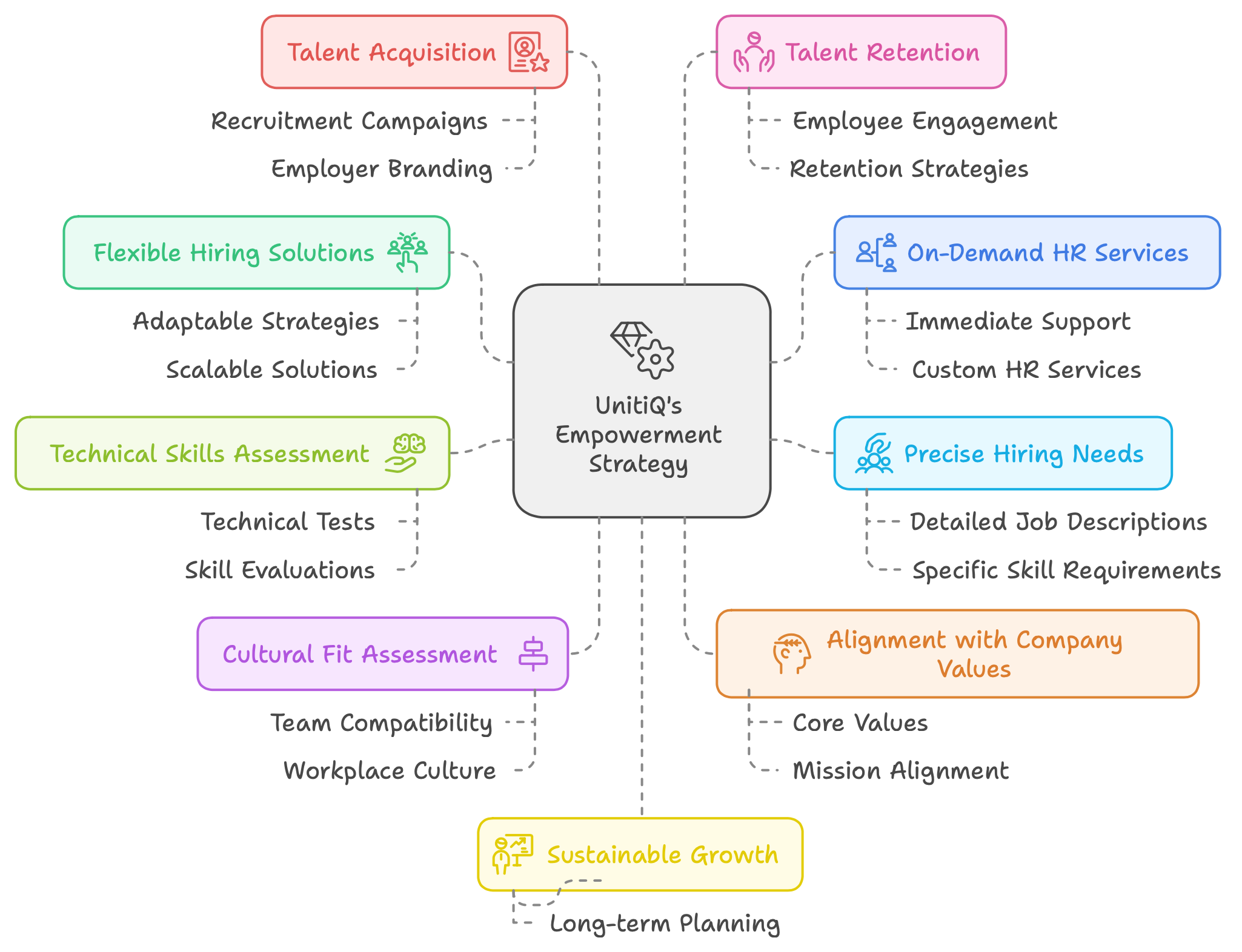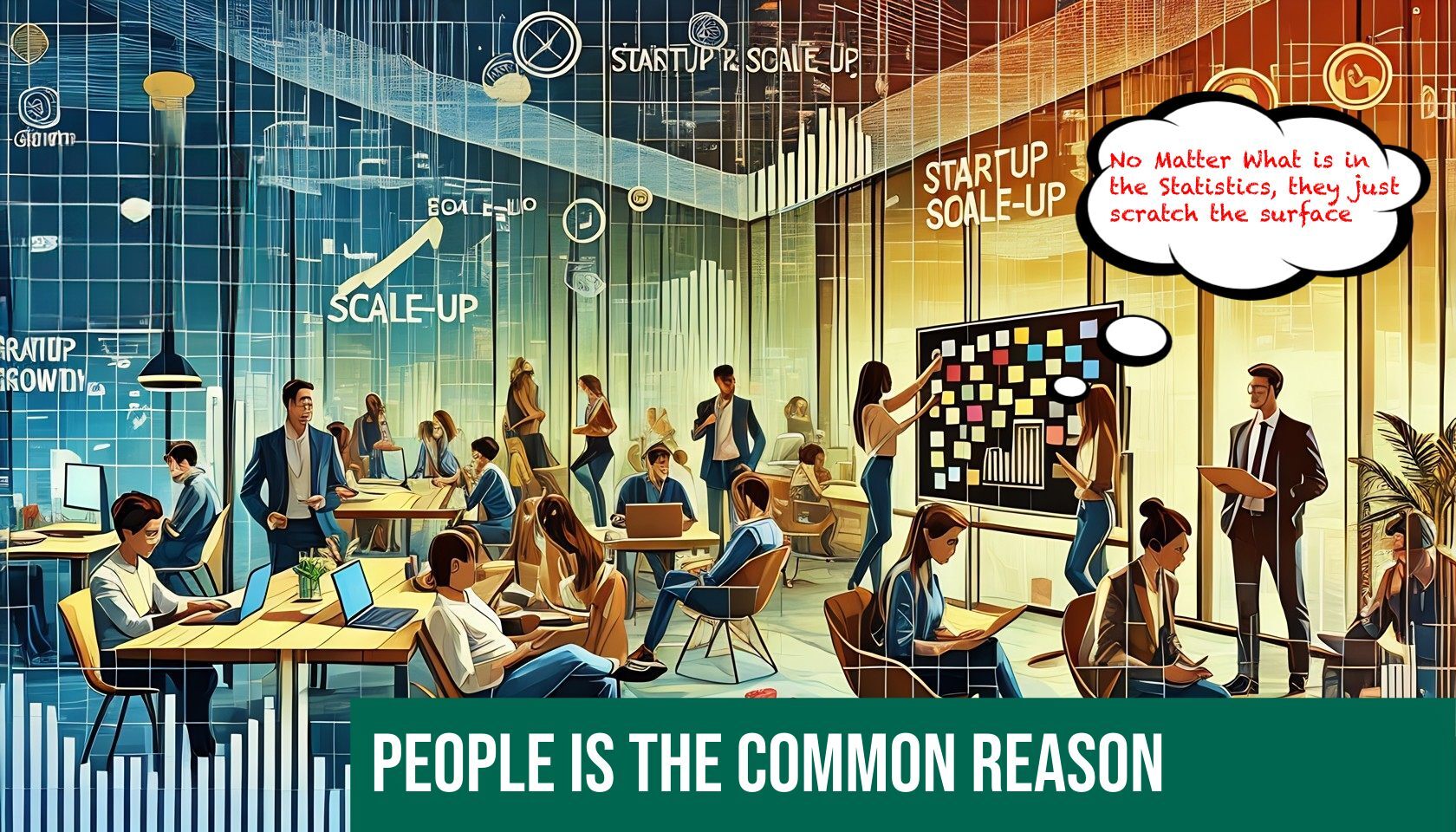People is the most common reason why startups fail. We need to assemble the right team
The most common reason why startups fail is people-related issues. Building the right team is crucial, and it starts with clearly defining your hiring needs. This is a critical step in developing a solid people strategy, as it ensures you attract candidates who are not just skilled but aligned with your company's culture and values.
Defining your hiring needs means outlining the specific skills, qualifications, experience, and personality traits that a candidate must possess to excel in the role. It’s about understanding what kind of talent will propel your business forward, both now and in the future. Read: 5 Hiring Hacks Every Founder Needs to Attract Top Talent Fast
When it comes to technical roles, many companies rely heavily on testing to shortlist candidates. While tests are useful, they don't always capture the full picture. Some candidates excel in test environments, while others might have valuable skills that aren't fully showcased through testing alone. Relying solely on this approach can lead to hiring "good but average" talent, missing out on the best-fit candidates who bring a unique mix of skills and personal attributes.
Drawing from our experience growing one of the largest tech unicorns in the UK, we've seen firsthand the importance of a holistic approach to hiring. It’s not just about finding the most qualified person on paper but about identifying those who are the right fit for your team’s dynamic and the company’s strategic goals. Our talent retention strategy goes beyond skills and qualifications; it delves into personality and micro-fit, ensuring that hires can grow with the company.
Successful talent acquisition means understanding that no one is perfect. We all have different learning styles, problem-solving abilities, and ways of working. Even if a candidate meets every technical requirement, that alone doesn’t guarantee success. We look deeper, assessing not just skills but adaptability, learning potential, and alignment with leadership values and team dynamics.
Defining your hiring needs means outlining the specific skills, qualifications, experience, and personality traits that a candidate must possess to excel in the role. It’s about understanding what kind of talent will propel your business forward, both now and in the future. Read: 5 Hiring Hacks Every Founder Needs to Attract Top Talent Fast
When it comes to technical roles, many companies rely heavily on testing to shortlist candidates. While tests are useful, they don't always capture the full picture. Some candidates excel in test environments, while others might have valuable skills that aren't fully showcased through testing alone. Relying solely on this approach can lead to hiring "good but average" talent, missing out on the best-fit candidates who bring a unique mix of skills and personal attributes.
Drawing from our experience growing one of the largest tech unicorns in the UK, we've seen firsthand the importance of a holistic approach to hiring. It’s not just about finding the most qualified person on paper but about identifying those who are the right fit for your team’s dynamic and the company’s strategic goals. Our talent retention strategy goes beyond skills and qualifications; it delves into personality and micro-fit, ensuring that hires can grow with the company.
Successful talent acquisition means understanding that no one is perfect. We all have different learning styles, problem-solving abilities, and ways of working. Even if a candidate meets every technical requirement, that alone doesn’t guarantee success. We look deeper, assessing not just skills but adaptability, learning potential, and alignment with leadership values and team dynamics.
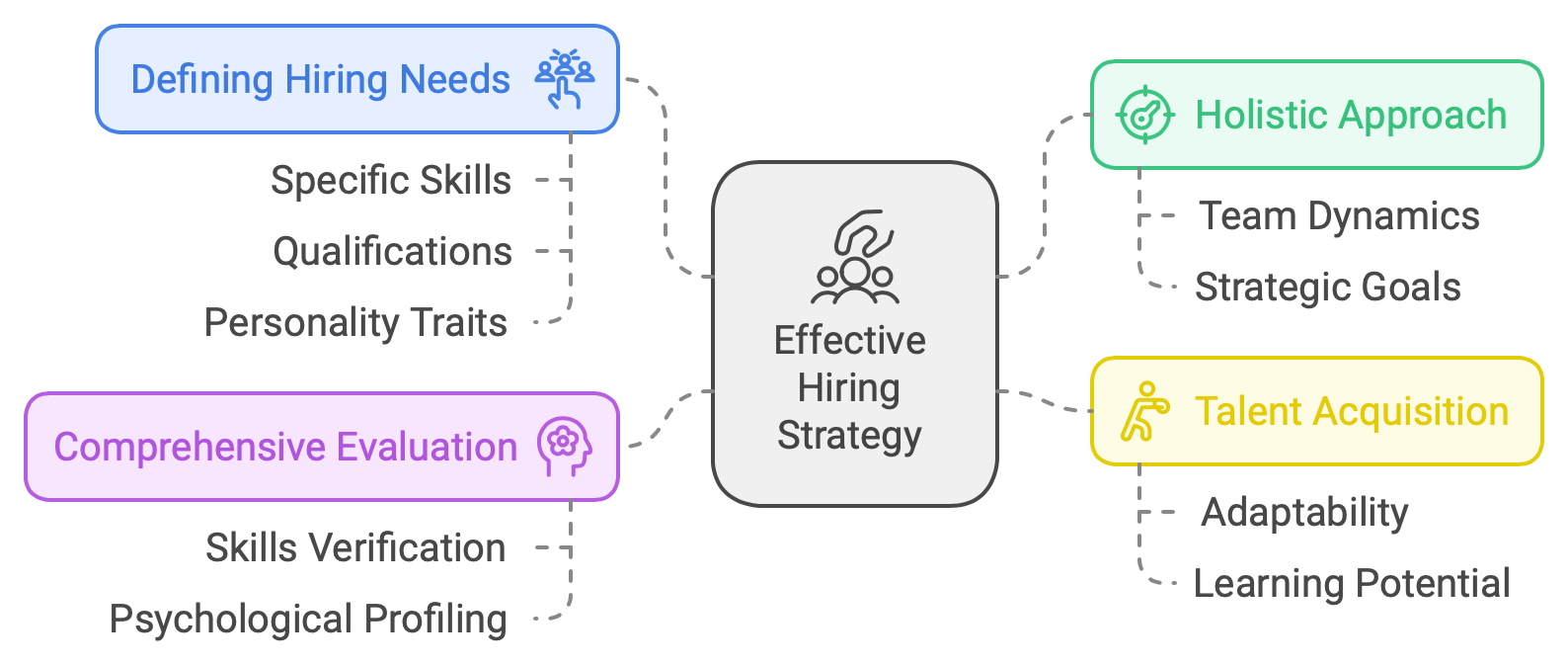
In our experience, most project challenges are not technological but psychological, stemming from communication breakdowns, lack of collaboration, or misaligned expectations. That’s why our HR services prioritize understanding the whole person behind the resume. Beyond verifying skills, we focus on qualities like adaptability, learning agility, and interpersonal skills. A successful hire is one who aligns with the hiring manager’s leadership principles and can thrive in the specific team environment.
However, hiring based solely on a pleasant personality without proper professional skills alignment can also backfire, leading to underperformance and broader team issues. This reinforces the need for a balanced approach—one that incorporates thorough skills verification with an in-depth understanding of personality and team fit.
We maintain a comprehensive database of verified candidates and constantly adapt to the fast-evolving market. Our process includes evaluating skills, personality, psychological profile, and the fit for the team and company’s goals. This approach is particularly crucial at different stages of a startup’s growth, where hiring needs shift dramatically between the initial build phase and later operational scaling.
Difference Between Defining Hiring Needs and Creating Open Positions
Defining your hiring needs is a strategic part of your people strategy. It involves pinpointing the exact skills, experience, and personal qualities required for success in a given role. This process helps to identify what gaps exist within your team and how they can be filled to support your company’s goals. It’s a crucial first step that lays the foundation for a targeted recruitment strategy.
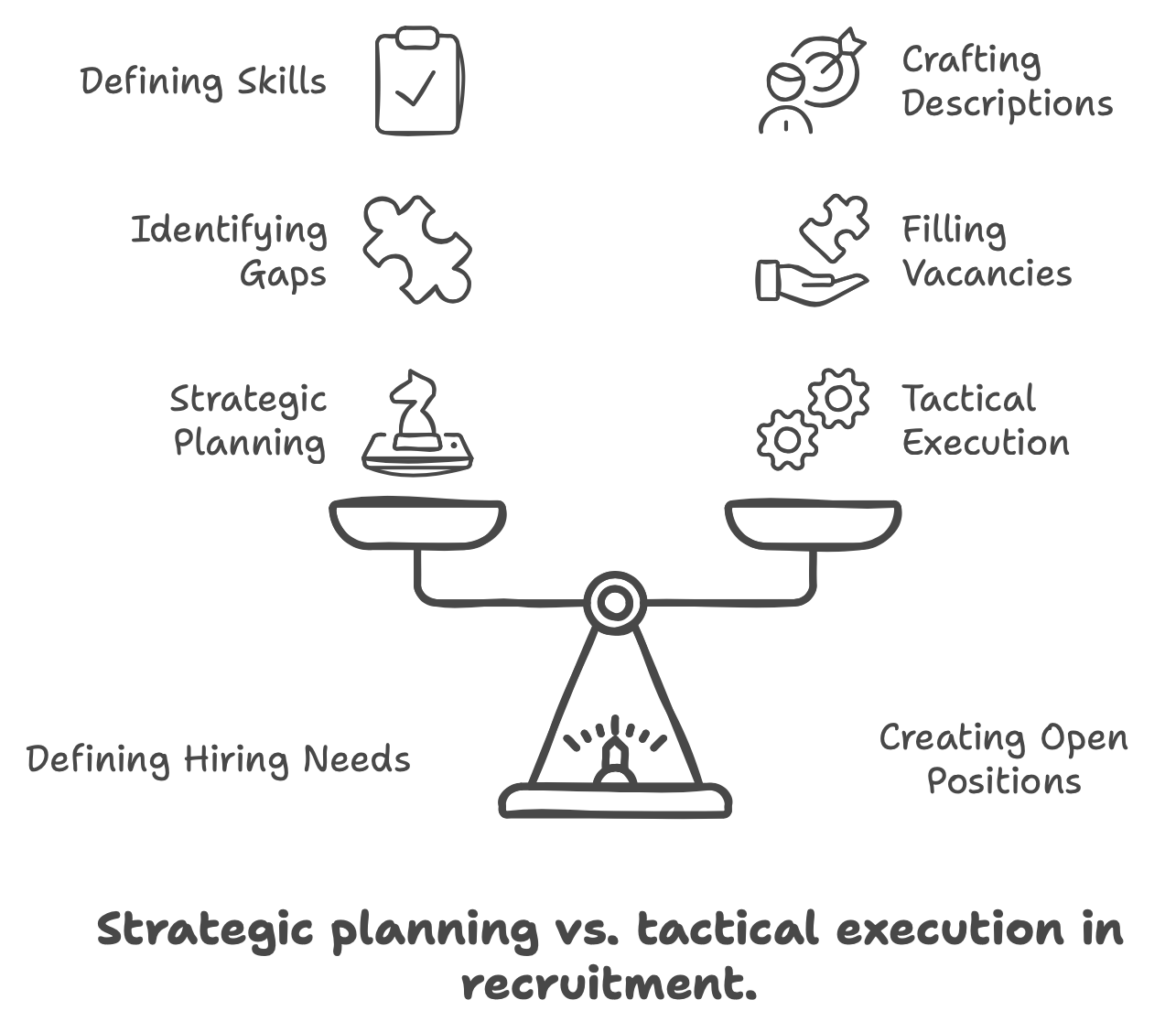
Creating open positions, on the other hand, is the tactical execution of this strategy. This involves formally establishing a job vacancy, crafting a compelling job description, and promoting the opportunity to attract potential candidates. While defining hiring needs shapes your overall people strategy, creating open positions is about activating that strategy to bring in talent.
Determining Specific Skills Needed for Your Team
To build an effective talent retention strategy and HR framework, you need a clear understanding of the skills required for each role. Here’s a step-by-step guide:
- Define Job Requirements: Start by detailing the job's responsibilities and the technical, industry-specific, and soft skills necessary for success. Consider how these skills fit within your broader people strategy.
- Consult with Team Members: Engage current employees performing similar roles to get insights into the skills and competencies critical to their success. Their feedback will provide a realistic picture of daily requirements.
- Identify Skill Gaps: Assess your team’s existing skills and highlight areas where new hires could add value. This analysis should align with your company’s strategic goals and talent retention efforts.
- Research Industry Trends: Stay informed about the skills in high demand within your industry. This will ensure your team remains competitive and aligned with market needs.
- Analyze Competitor Job Descriptions: Reviewing job descriptions from other companies can offer insights into effective benchmark of our needs and stay ahead of emerging skill requirements
- Use Skills Assessment Tools: I make it a priority to use skills assessment tools. Incorporating these assessments allows me to objectively evaluate a candidate’s capabilities beyond what's listed on their resume. This data-driven approach gives me a clear, unbiased view of each candidate's strengths and areas for development, helping me make more informed hiring decisions that align with our team's goals and culture. By leaning on objective data, I can confidently identify the right fit for our team, ensuring we're not just filling a position but building towards our long-term people strategy.
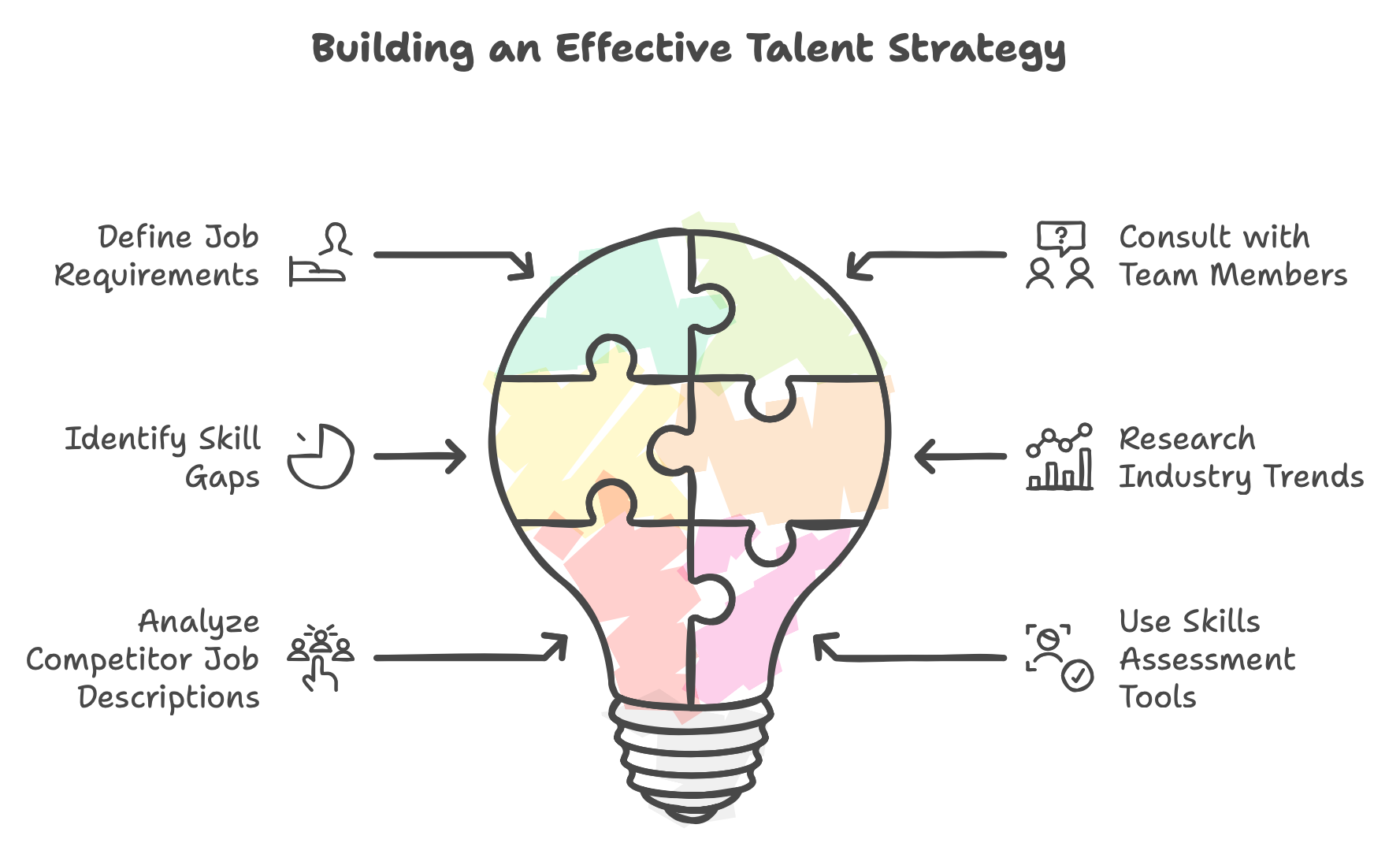
By incorporating these strategies, you not only identify the skills necessary for each role but also contribute to a more effective talent retention strategy, ensuring that your team is equipped to drive the company’s growth.
UnitiQ team is looking forward in helping you building your efficient and successful team. Contact us today and learn more.
I recommend you to read related articles:
The Science of Talent Acquisition: How Structured Evaluation Predicts Success
How Fractional HR and Flexible Work Schedules Enhanced Talent Acquisition at Charge
Guide: HR’s Role in Team Management and Preventing Burnout
Why Startups Need Fractional HR: Immediate Expertise at a Fraction of the Cost
Building High-Performance Teams: Mastering A-Player Talent Acquisition and People Management
6 Key Use Cases Where Fractional HR Solutions Drive Business Growth
Scaling Smart: How UnitiQ Helps In-House HR Teams Overcome Key Challenges
How UnitiQ Empowers Companies to Hire and Manage High-Performing Teams
UnitiQ helps companies build and manage efficient teams by offering flexible hiring solutions and on-demand HR services tailored to today’s dynamic business environment. We assist in defining precise hiring needs, assessing both technical skills and cultural fit, and ensuring that new hires align with company values and goals. Through our holistic approach to talent acquisition and retention, UnitiQ empowers businesses to overcome people-related challenges, fostering strong teams that drive sustainable growth and long-term success.
I'll be glad to be your Fractional / Interim HR Executive. DM me today for getting a special offer
My Telegram
My LinkedIn
I'll be glad to be your Fractional / Interim HR Executive. DM me today for getting a special offer
My Telegram
My LinkedIn
